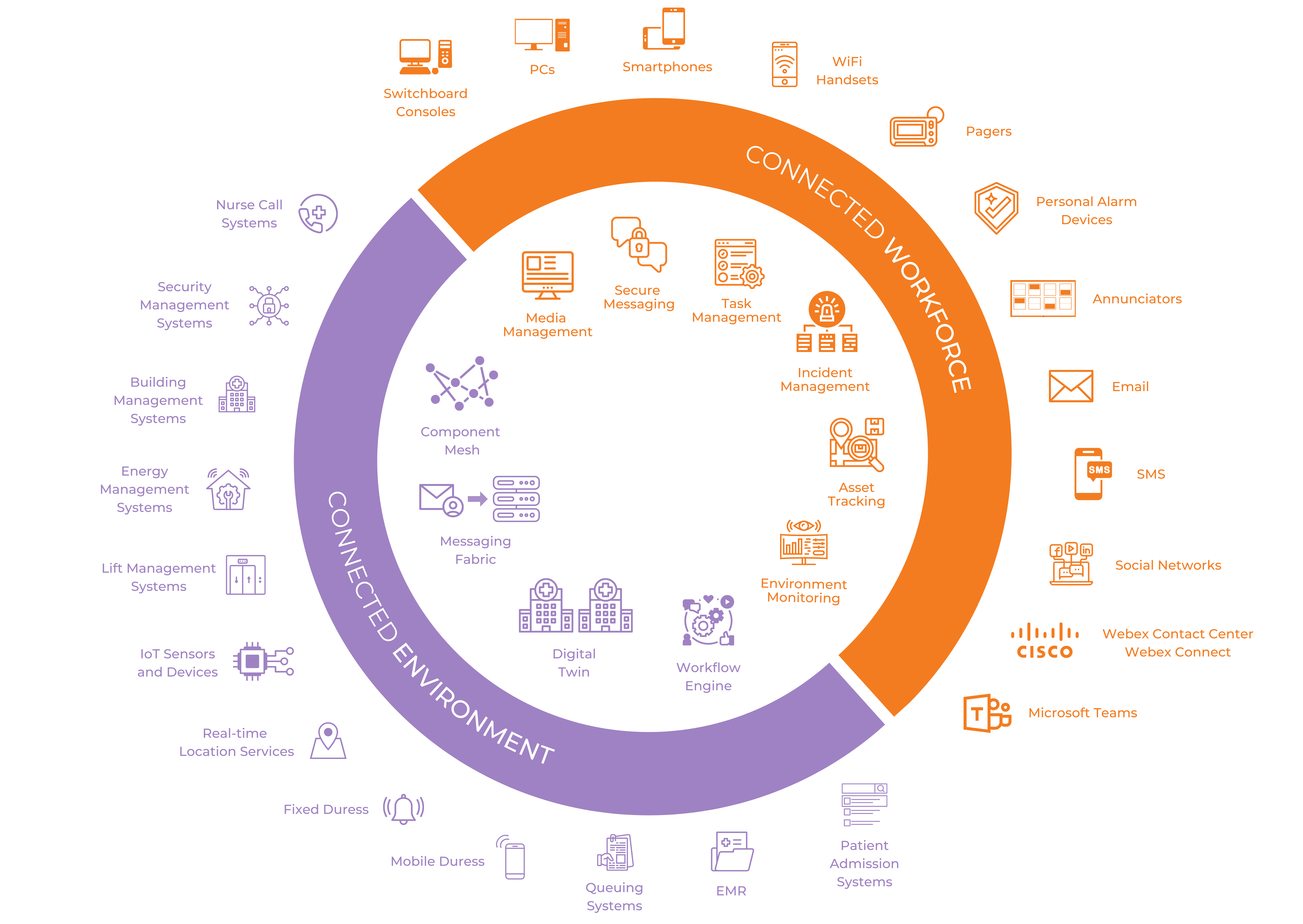In one of our latest news post, Jeremy Brady – our Head of Delivery – shared insights on how technology providers can use their platform to provide small data in healthcare.
Whilst research has also shown that many clinicians are turning to real-time and accessible small data to help enhance immediate and quality patient care, big data has the potential to support healthcare providers to meet the – mostly – global challenges of:
- ageing populations and related disability.
- shortages of healthcare workers and professionals.
- increasing healthcare costs.
- increased health data breaches
- increased citizens’ and community expectations.
Whilst there is no doubt that any function provided by an application is useful, there is massive value in an application agnostic view of data.
One of the biggest challenges in effective utilisation of Big Data is to ensure data from numerous disparate applications and other data sources can be collated, stored, and analysed to provide valuable and actionable insights.
However, with recent big data technologies and capabilities, healthcare providers can consolidate and analyse the digital treasure trove that is Big Data to discover insights, truly data driven, to identify hospital efficiencies that will provide quantifiable benefits to both staff and patients.
We explore – through our own experience of implementing digital solutions in 70+ Australian healthcare facilities – how certain capabilities in technology platforms can help distil the Big Data deluge that can easily overwhelm.
Integrated systems
Capturing data is one of the known and shared obstacles across healthcare organisations. This is partly due to the clinical environment being inherently complex, with disparate practices and applications in each setting. This leads to technologies and solution being developed, each with their own priority and focused setting.
As a result, an environment is created in which data is stored in silos, making true data-driven business decisions difficult, is created.
However, siloed, and disparate systems and applications can be interfaced using an integration engine, which can act as a ‘single pane’ to allow data to be viewed and acted upon holistically.
This is the capability of Olinqua’s Messaging Integration Engine – MIE – providing for customers in health and aged care facilities who recognise the value of data, the visibility and ability to utilise cross platform information – presented in one place.
Interoperability
Interoperability is the ability of systems to exchange and utilise information.
Interoperability – provided by Olinqua’s Integration Engine, for example – allows data to be exchanged between disparate systems that may not conform to the same standard, without any knowledge from an end user.
The value and benefits of data is increased exponentially when data can be linked and acted upon, irrespective of source.
Olinqua’s IGNITE Connected Environment modules – the component host, message delivery, digital twin, and integration edge – has been built with an interoperability layer that allows disparate clinical communication and collaboration systems within a healthcare facility to exchange information.
This information is then accessible on any chosen device. Technology providers can work to make their platforms interoperable with existing data collection, sharing and transfer systems that exist within healthcare facilities.

However, interoperability is not only about technology, as The Australian Digital Health Agency identified.
It is also about people willing to work together to collect, share and make better use of the information we have available. And, as our CTO (Chief Technology Officer), Martin Moszczynski, recently shared at the WildHealth Cloud Healthcare webinar, “interoperability is…a thing that’s happening, not something that everyone’s waiting for to happen.”
Hybrid Solution – On-premises and Cloud
The sheer amount of computing resources and software services needed to support big data efforts can produce high financial and intellectual costs for healthcare facilities.
The benefits of Cloud Computing are well known.
It allows organisations to move from owning and maintaining ICT (Information and Communication Technology) infrastructure to consumers of on-demand, consolidated services.
Physical removal and consolidation of hardware, a reduction of contracts and purchasing simplification has the potential to create savings, increase cyber security, reduce downtime, increase collaboration, and provide agility for organisations to drive innovation by removing the limitations inherent with ownership.
Cloud providers provide an ‘infinitely’ scalable, flexible, consumption and demand-based model of compute resource provision so that business demands can be more quickly met.
Hence, the cloud can help with making big data technologies accessible and affordable.
In a regulated industry, such as Healthcare, where data may have security and storage location requirements, technology providers can offer a hybrid solution of on-premises and cloud services.
Olinqua IGNITE is available as an on-premises deployment, Software as a Service and as a hybrid.
So, we partner with one of the best – Microsoft – to optimise the use of cloud-native components, while ensuring it provides the security, integrity and resiliency required for a critical hospital service.
Data Security
The healthcare industry places a great deal of importance in protecting highly sensitive data and patient data – that is of course incorporated within big data collection, storing, and sharing.
A focus on cyber security should be paramount for any organisation. At Olinqua , for example, we:
- Have a dedicated CISO (Chief Information Security Officer) to ensure that engineers and support teams are aware of and adhere to industry best practice.
- Build core infrastructure using the highest level of security, safety, and data privacy in mind.
- Are achieving ISO9001 and 27001 accreditations.
- Establish partnership networks that have a strong vetting process and shared value when it comes to robust cyber security.
Informatics
Collecting and sharing data does not add value unless it can provide insights, efficiencies and is utilised. The interdisciplinary field of Health Informatics provides a structured and formal approach in ensuring technology and data is utilised to better patient care.
Although the term Health Informatics has been utilised since the 1960s, it is only relatively recent that the profession has matured into a well-defined discipline.
Health Informatics is defined by Standards Australia as ‘the appropriate and innovative application of the concepts and technologies of the information age to improve health care and health.’
The good news is that at Olinqua, our team members – including – our Head of Delivery, Jeremy Brady, is not only passionate about health informatics but also have the knowledge and experience, through his previous appointment as the Head of Informatics at WA Health’s South Metropolitan Health Services.
So, watch this space as health informatics unfolds within Olinqua.
Or if you have any questions about our platform and how it can support big data collection, sharing and analysis, contact one of our digital health consultants.



